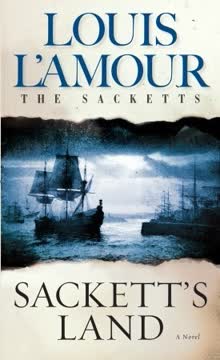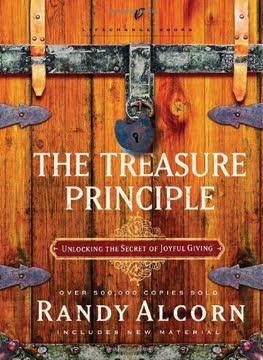Plot Summary
Fenland Fortune Unearthed
Barnabas Sackett, a hardworking young man in the English fens of 1599, stumbles upon ancient gold coins while traversing the Devil's Dyke. The Found Treasure is both a blessing and a curse, awakening in him dreams of a better life but also the need for secrecy. He seeks out Coveney Hasling, a scholar and antiquities dealer, to discreetly sell the coins. This windfall gives Barnabas the means to buy land and improve his station, but it also sets him on a path of adventure, as the rigid social order and his own restless spirit push him toward a destiny far beyond the fens.
A Blow, A Fugitive
Barnabas's fate takes a sharp turn when a chance encounter with a noblewoman and her jealous suitor, Rupert Genester, leads to a violent altercation. Barnabas, defending himself, humiliates Genester in public. In Elizabethan England, such an affront to nobility is unforgivable. Realizing the danger, Barnabas flees with the help of Jublain, a wandering swordsman. The two escape into the wild, marshy fens, where Barnabas's knowledge of the land keeps them hidden from pursuers. The incident marks the end of his old life and the beginning of a perilous journey.
Into the Fens' Refuge
Barnabas and Jublain find sanctuary in a secret fenland cottage, living off the land and reflecting on their next move. The fens, with their labyrinthine waterways and isolation, offer safety but not a future. Hasling arrives with a warning: Genester's men are closing in. Barnabas and Jublain narrowly escape an armed attack, fighting their way to freedom. The episode cements their bond and convinces Barnabas that England holds no safety for him. The lure of the New World, with its promise of opportunity and reinvention, grows stronger.
London's Labyrinth Beckons
Barnabas and Jublain journey to London, seeking anonymity and opportunity. The city is a bustling, dangerous place, teeming with intrigue, commerce, and violence. Barnabas, using his newfound wealth and wits, navigates the world of antiquities, meets colorful characters like Corvino the rogue, and learns of ventures to America. He becomes entangled in the city's undercurrents, from the Society of Antiquaries to the shadowy dealings of ship captains and traders. London is both a maze and a crucible, testing Barnabas's adaptability and ambition.
Schemes, Swords, and Society
Barnabas's resourcefulness brings him to the attention of Captain Brian Tempany and his daughter Abigail, as well as other would-be colonists and adventurers. He invests in trade goods, hoping to join a voyage to America. The city's dangers persist—Genester's enmity, criminal threats, and the ever-present risk of betrayal. Barnabas's circle grows to include Jublain, Corvino, and Sakim, a Moorish sailor. Together, they prepare for a transatlantic venture, each driven by dreams of fortune, freedom, or escape.
The Theater Turns Deadly
A visit to the Globe Theatre becomes a deadly trap when Genester and his men attempt to capture Barnabas. A chaotic brawl ensues, with Corvino's quick thinking enabling Barnabas's escape. The episode underscores the ever-present danger and the thin line between civilization and violence. Barnabas finds unexpected refuge with Abigail Tempany, deepening their connection and setting the stage for future partnership. The city's theater of life is as perilous as any wilderness.
Tempany's Offer, Genester's Plot
Captain Tempany offers Barnabas and his companions passage to America, recognizing their value as fighting men and traders. Barnabas's fortunes seem to rise, but Genester's machinations continue. Through a web of informants and hired thugs, Genester arranges for Barnabas to be kidnapped and delivered to Nick Bardle, a ruthless privateer. Barnabas is shanghaied onto the Jolly Jack, bound for the New World not as a merchant but as a virtual prisoner.
Betrayed to the Jolly Jack
Aboard the Jolly Jack, Barnabas endures brutal conditions and constant threat. He befriends Sakim and Rufisco, fellow outcasts, and together they plot escape. Barnabas's strength and cunning earn him a grudging respect from the crew, but he knows his life is forfeit if he cannot break free. The Atlantic crossing is a crucible, forging Barnabas's resolve and teaching him the harsh realities of power, loyalty, and survival.
Mutiny and Escape
Barnabas, Sakim, and Rufisco stage a daring mutiny, overpowering their captors and escaping in a small boat with trade goods. They land on the wild, uncharted coast of America, a land both beautiful and perilous. The trio must quickly adapt, hiding from both hostile natives and Bardle's vengeful crew. The New World is a place of opportunity, but also of constant danger and uncertainty.
New World, New Dangers
Barnabas and his companions establish contact with local tribes, notably Potaka, a friendly chief. They begin trading for furs, learning the complexities of native politics and the value of respect and honesty. Not all encounters are peaceful—rival tribes and misunderstandings lead to violence. The group's fortunes rise and fall with each transaction, and the specter of Bardle and Genester's reach looms ever present.
Trading and Treachery
Success in trade brings both wealth and new enemies. The group's cache of furs grows, but so does the risk. Bardle's men ambush them, resulting in the capture and eventual death of Rufisco. Barnabas and Sakim are forced to rely on their wits and the goodwill of native allies to survive. The New World proves as treacherous as the old, demanding courage, adaptability, and sacrifice.
Losses and Loyalties
The loss of Rufisco is a bitter blow, underscoring the cost of ambition and the fragility of life on the frontier. Barnabas and Sakim bury their friend and press on, determined to fulfill their mission. They reunite with Tempany's ship, the Tiger, and Abigail, rekindling hope and companionship. The Band of Companions' shared hardships forge unbreakable bonds, and Barnabas's vision of a new life in America becomes clearer.
The Tiger's Peril
The Tiger is attacked and grounded by Bardle's Jolly Jack. Stranded and outgunned, Barnabas, Abigail, and their allies must defend themselves against overwhelming odds. Through ingenuity and valor, they repel Bardle's assaults, repair the ship, and prepare for a final confrontation. The struggle for survival is both physical and psychological, testing every member of the group.
Alone on the Island
Separated from his companions, Barnabas endures days of isolation on a desolate island, battling hunger, cold, and a monstrous alligator. His survival depends on resourcefulness and sheer will. The ordeal strips him to his core, reaffirming his determination to live, to build, and to return to those he loves. The wilderness is both adversary and teacher.
Rescue and Reunion
Barnabas is rescued by his friends, and together they regroup. The reunion is bittersweet, marked by losses but also by renewed purpose. The group repairs the Tiger, gathers their hard-won furs and goods, and prepares to leave the New World. The bonds of friendship and love, especially between Barnabas and Abigail, are now unbreakable.
Bardle's Last Stand
Bardle and Genester launch a final assault, seeking vengeance and control of the Tiger. In a climactic battle, Barnabas and his allies outfight and outwit their enemies. Bardle is defeated, Genester's schemes unravel, and the Tiger escapes to sea. The victory is hard-won, a testament to courage, loyalty, and the refusal to yield to tyranny.
Homeward Bound, Hunted
The Tiger sails for England, holds bursting with furs and potash. Barnabas dreams of a future in America, but danger awaits in London. Genester, still powerful, has arranged for Barnabas's arrest. The group must navigate the treacherous politics and back alleys of the city, relying on old friends and quick wits to survive.
London Shadows and Schemes
Barnabas and Jublain evade capture with the help of loyal friends like Peter Tallis and Jeremy Ring. They learn that Sir Robert, the Earl and Barnabas's benefactor, is gravely ill and held captive by Genester. The struggle shifts from the wilds of America to the intrigue-laden halls of English power, where reputation and inheritance are at stake.
The Earl's Imprisonment
Determined to repay his father's debt of honor, Barnabas organizes a daring rescue of the Earl. The plan involves subterfuge, alliances, and the ever-present risk of betrayal. The group's loyalty and courage are tested as they prepare to confront Genester on his own ground, knowing that failure means death or ruin.
The Manor Confrontation
In a dramatic showdown at Genester's manor, Barnabas and his companions fight their way through Genester's men. Barnabas faces Genester in single combat, defeating him and saving the Earl. The victory is both personal and symbolic—a triumph of merit over privilege, of loyalty over treachery. The path to America is now open, but not without cost.
Destiny Across the Ocean
With Genester defeated and the Earl's blessing, Barnabas prepares to return to America. Abigail chooses to join him, embracing the risks and promise of the New World. Barnabas rejects the easy life of inherited wealth, choosing instead to build his own legacy. The story ends with the couple setting sail, their future—and that of the Sackett family—bound to the vast, untamed land across the ocean.
Characters
Barnabas Sackett
Barnabas is the archetypal self-made man, driven by a restless spirit and a deep sense of honor inherited from his soldier father. His journey from fenland farmer to American adventurer is marked by adaptability, courage, and a refusal to accept the limits imposed by class or circumstance. Barnabas is fiercely loyal to friends and family, quick to learn, and unafraid to risk everything for a better future. His psychological complexity lies in his blend of humility and ambition, his longing for belonging, and his willingness to fight for both survival and principle.
Jublain
Jublain is a wandering soldier of fortune, skilled with blade and wit. Initially skeptical and self-serving, he becomes Barnabas's closest ally, drawn by respect for Barnabas's integrity and vision. Jublain's cynicism masks a deep need for purpose and belonging, which he finds in the camaraderie of the group. His development is marked by growing loyalty and a willingness to risk himself for others, even as he questions the morality of their actions.
Abigail Tempany
Abigail is more than a love interest; she is Barnabas's equal in courage and resolve. Raised in a world of privilege, she chooses the uncertainty of the New World over the safety of England, driven by love and a desire for agency. Abigail's intelligence, resourcefulness, and emotional strength make her indispensable, both as a partner in survival and as a symbol of the new kind of family and society Barnabas hopes to build.
Rupert Genester
Genester is the primary antagonist, representing the entrenched privilege and cruelty of the English aristocracy. His vendetta against Barnabas is both personal and symbolic—a battle between old and new, birthright and merit. Genester is cunning, ruthless, and ultimately undone by his own pride and inability to adapt. Psychologically, he is driven by insecurity and a desperate need to maintain status.
Captain Brian Tempany
Tempany is a seasoned captain, shrewd and fair, who recognizes Barnabas's potential and offers him a chance to prove himself. He serves as a mentor and father figure, balancing risk with responsibility. Tempany's relationship with Abigail and Barnabas is both protective and empowering, encouraging their independence while providing guidance.
Corvino
Corvino is a streetwise survivor, quick with a joke or a trick. Initially motivated by self-interest, he becomes a steadfast ally, contributing cunning and courage to the group's endeavors. Corvino's adaptability and humor provide balance to the story's darker moments, and his loyalty is hard-won but unshakeable.
Sakim
Sakim brings a global perspective and a calm wisdom to the group. As a Moor, he is doubly an outsider—both in England and America—but his skills and insight are invaluable. Sakim's philosophical outlook and quiet strength make him a stabilizing force, and his friendship with Barnabas is based on mutual respect and shared hardship.
Rufisco
Rufisco is a world-weary Italian who joins Barnabas's escape from the Jolly Jack. His skepticism and longing for comfort contrast with Barnabas's ambition. Rufisco's death is a poignant reminder of the cost of adventure and the unpredictability of fate. His character explores themes of loyalty, regret, and the search for meaning.
Coveney Hasling
Hasling is a learned antiquarian who helps Barnabas navigate the world of London's collectors and scholars. He represents the value of knowledge, history, and ethical conduct. Hasling's support is crucial in both practical and moral terms, guiding Barnabas through the complexities of both English society and personal conscience.
Sir Robert (the Earl)
Sir Robert is the dying Earl whose friendship with Barnabas's father and eventual support for Barnabas symbolize the passing of the old order and the rise of the new. His captivity and rescue are central to the story's climax, and his blessing enables Barnabas to pursue his American destiny. Sir Robert's character explores themes of legacy, gratitude, and the tension between tradition and progress.
Plot Devices
The Found Treasure
Barnabas's unearthing of ancient coins is the catalyst for the entire narrative. The Found Treasure represents both opportunity and danger, propelling Barnabas into conflict with the social order and setting him on a path of adventure. The device serves as both literal and symbolic fortune, testing Barnabas's judgment and ambition.
The Relentless Pursuer
Rupert Genester's pursuit of Barnabas provides continuous tension and danger, forcing Barnabas to adapt, flee, and fight. Genester's role as antagonist embodies the resistance of the old order to change, and his schemes drive much of the action, from London to America and back.
The Journey and Exile
Barnabas's flight from England and journey to America is both a literal and metaphorical exile. The narrative structure follows the classic hero's journey: departure, trials, transformation, and return. Each stage tests and refines Barnabas's character, forging him into a leader and founder.
The Band of Companions
Barnabas's group—Jublain, Corvino, Sakim, Rufisco, Abigail—represents a microcosm of the new society he hopes to build. Their varied backgrounds and skills are essential to survival and success. The device allows for exploration of themes like loyalty, diversity, and the forging of community.
The New World as Frontier
The New World is both setting and symbol—a place where old hierarchies are challenged and new possibilities emerge. The narrative uses the frontier to explore themes of freedom, reinvention, and the costs of ambition. Encounters with natives, nature, and rival Europeans highlight the complexity and danger of colonization.
Foreshadowing and Cyclical Structure
Throughout the novel, references to ancestry, legacy, and the founding of a family foreshadow the broader Sackett saga. The story's cyclical structure—departure, return, and renewed departure—emphasizes the ongoing nature of exploration and the building of a new world.
Analysis
Sackett's Land is both a rousing adventure and a meditation on the birth of the American spirit. Through Barnabas Sackett's journey from humble fenland farmer to New World pioneer, Louis L'Amour explores themes of self-reliance, honor, and the relentless pursuit of opportunity. The novel critiques the rigid class structures of Elizabethan England, contrasting them with the promise and peril of America's frontier. Barnabas's story is one of transformation—driven by chance, tested by adversity, and ultimately defined by the choices he makes. The narrative celebrates courage, adapt
Last updated:
Review Summary
Sackett's Land is generally well-received as an engaging historical adventure novel. Readers appreciate L'Amour's storytelling, vivid descriptions, and historical research. The book introduces Barnabas Sackett and sets up the Sackett family saga. Some praise the action-packed plot and likable characters, while others find the protagonist too perfect and the story predictable. Many readers enjoy the unexpected setting in 17th-century England and early America. Overall, it's considered a fun, quick read that appeals to both L'Amour fans and newcomers.
Download PDF
Download EPUB
.epub digital book format is ideal for reading ebooks on phones, tablets, and e-readers.








